
modern herbal dispensatory a medicine making guide
Modern herbal medicine combines ancient traditions with scientific advancements‚ offering natural remedies for health. The Modern Herbal Dispensatory provides a comprehensive guide to creating effective herbal medicines at home‚ emphasizing safety‚ sustainability‚ and holistic wellness through 250 tried-and-tested formulations.
1.1. Definition and Scope of Herbal Medicine
Herbal medicine‚ a holistic practice‚ uses plant extracts to promote health and treat ailments. It encompasses a wide range of remedies‚ from teas and tinctures to salves and infusions. The scope includes prevention‚ wellness‚ and treatment‚ relying on plants’ natural compounds. This traditional approach is now supported by modern research‚ ensuring safety and efficacy. The Modern Herbal Dispensatory guides practitioners in crafting these remedies‚ emphasizing ethical and sustainable practices to harness nature’s healing potential effectively.
1.2. Evolution of Herbal Medicine in the Modern Era
Herbal medicine has evolved significantly‚ blending traditional knowledge with modern science. Advances in extraction methods and quality control have enhanced efficacy and safety. The Modern Herbal Dispensatory reflects this progression‚ offering detailed guides for crafting remedies. Contemporary practices emphasize sustainability and ethical sourcing‚ ensuring herbal medicine remains a viable‚ natural healthcare option. This integration of ancient wisdom with modern techniques has expanded its reach‚ making it accessible for holistic wellness in today’s world.
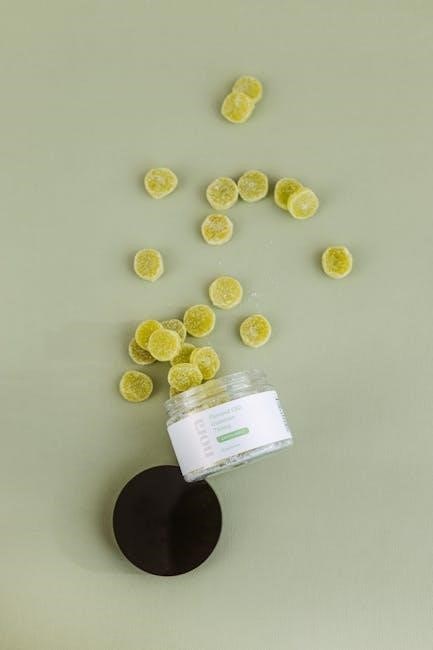
The Role of a Herbal Dispensatory
A herbal dispensatory serves as a comprehensive resource for creating herbal remedies‚ offering detailed instructions for safe‚ effective‚ and sustainable medicine making‚ ensuring holistic wellness.
2.1; Historical Development of Herbal Dispensatories
Herbal dispensaries trace their roots to ancient healing traditions‚ where plants were used to treat ailments. Over centuries‚ these practices evolved‚ with dispensaries becoming centralized hubs for herbal remedies. By the Middle Ages‚ monasteries and apothecaries played key roles in preserving and distributing herbal medicines. The Renaissance further formalized herbalism‚ leading to the creation of detailed pharmacopeias. Today‚ modern dispensaries blend this rich history with contemporary science‚ ensuring safe and effective herbal medicine production for holistic health.
2.2. Modern Applications of a Herbal Dispensatory
Modern herbal dispensaries serve as vital resources for crafting customized herbal remedies‚ blending traditional wisdom with contemporary science. They enable the safe production of tinctures‚ teas‚ and extracts‚ addressing individual health needs. The Modern Herbal Dispensatory‚ a key guide‚ details 250 effective formulations‚ empowering practitioners to create tailored treatments. These dispensaries also play a crucial role in integrative healthcare‚ offering natural alternatives and fostering holistic wellness by combining ancient practices with modern techniques for optimal health outcomes.
Essential Tools and Equipment for Herbal Medicine Making
Key tools include glass jars‚ precision scales‚ and herbal grinders for preparing remedies. These essentials enable safe‚ efficient creation of herbal medicines‚ ensuring potency and quality.
3.1. Basic Tools for Herbal Preparations
Essential tools for herbal preparations include glass jars for storage‚ a mortar and pestle for grinding‚ and a tea infuser for steeping. These basics ensure effective and safe herbal medicine making.
3.2. Advanced Equipment for Large-Scale Production
For large-scale herbal production‚ advanced equipment like industrial-scale grinding mills and large-capacity extraction units are essential. Distillation units and vacuum presses are used to create concentrated extracts. Automated packaging systems ensure efficiency and consistency. These tools streamline production‚ maintaining high-quality standards for commercial herbal medicine manufacturing.
Safety Guidelines and Precautions
Adhering to safety protocols is crucial in herbal medicine. Potential allergic reactions‚ contraindications‚ and proper dosing must be considered. The Modern Herbal Dispensatory provides clear guidelines to ensure safe practices and avoid adverse effects.
4.1. Understanding Herbal Contraindications
Herbal contraindications refer to conditions or situations where certain herbs should not be used‚ such as during pregnancy or with specific medical conditions. The Modern Herbal Dispensatory emphasizes the importance of understanding these restrictions to avoid adverse reactions. Allergic reactions‚ drug interactions‚ and individual sensitivities must be considered. Proper identification of herbs and consultation with healthcare professionals are crucial steps to ensure safe and effective use of herbal remedies‚ especially for vulnerable populations like children‚ pregnant individuals‚ and those with chronic illnesses.
4;2. Proper Hygiene and Sterilization Techniques
Proper hygiene and sterilization are crucial in herbal medicine making to prevent contamination and ensure safety. Sanitize all tools and surfaces using methods like autoclaving or chemical solutions. Wash hands thoroughly before handling herbs. Store herbs and equipment in clean‚ dry environments to maintain quality. Regular cleaning schedules and proper storage conditions help prevent contamination‚ ensuring the efficacy and safety of herbal remedies.
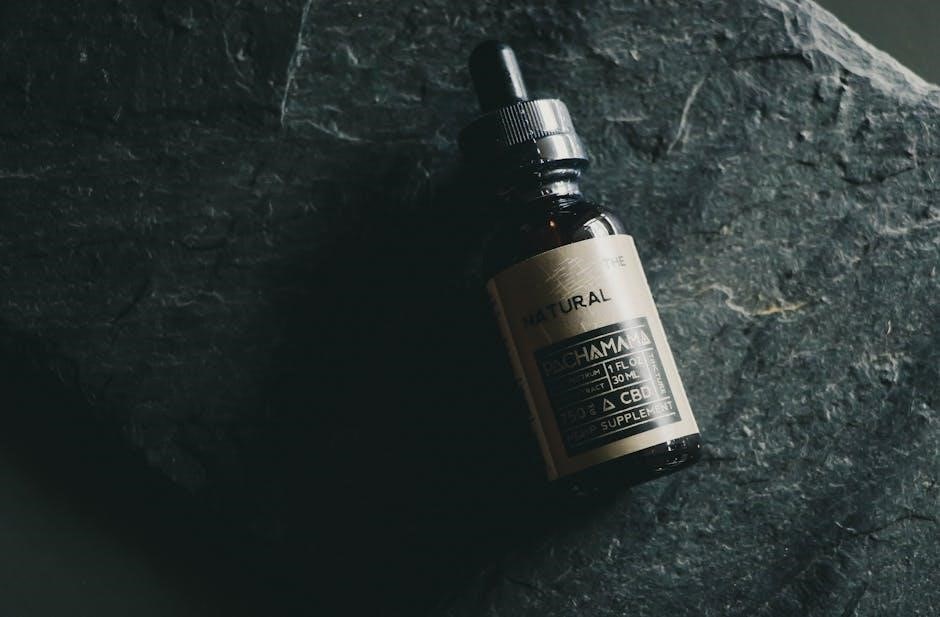
Sourcing and Identifying Herbs
Sourcing high-quality herbs involves ethical practices‚ accurate identification‚ and sustainable methods from wild or cultivated sources to ensure potency and safety for effective herbal remedies.
5;1. Wildcrafting and Ethical Harvesting Practices
Wildcrafting involves harvesting herbs responsibly in their natural habitats to preserve ecosystems. Ethical practices ensure sustainable use‚ respecting plant populations and minimizing environmental impact. Proper identification and mindful harvesting techniques are crucial to maintain herb quality and ecological balance. This approach supports biodiversity while providing potent‚ natural remedies for medicine-making‚ aligning with the principles outlined in The Modern Herbal Dispensatory for sustainable health practices.
5.2. Cultivating Herbs for Medicine
Cultivating herbs for medicine involves growing plants under controlled conditions to ensure quality and potency. Soil quality‚ sunlight‚ and water are critical factors. Many herbs‚ like calendula and echinacea‚ thrive in well-drained soil and full sun. Propagation methods vary‚ from seed to division‚ depending on the plant. Regular maintenance‚ such as pruning and pest control‚ ensures healthy growth. Home cultivation allows for fresh‚ chemical-free herbs‚ aligning with the sustainable practices promoted in The Modern Herbal Dispensatory for effective medicine making.
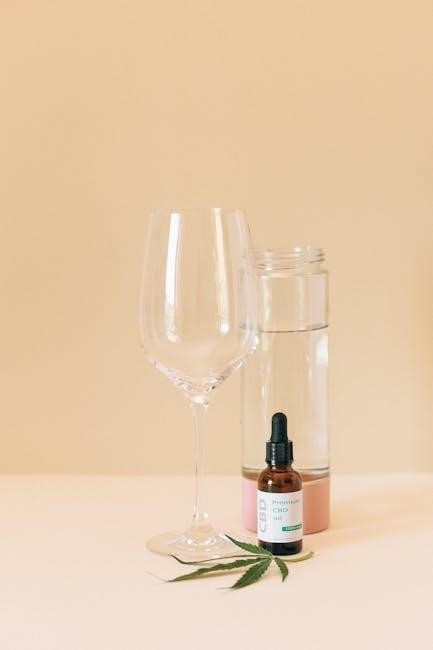
Methods of Herbal Preparation
Herbal preparation transforms plants into potent remedies. Common methods include infusions‚ decoctions‚ teas‚ tinctures‚ and elixirs. Each technique enhances bioavailability and ensures safety. The Modern Herbal Dispensatory provides detailed guidance for effective preparation.
6.1. Infusions‚ Decoctions‚ and Teas
Infusions‚ decoctions‚ and teas are fundamental methods in herbal preparation. Infusions involve steeping herbs in hot water‚ ideal for delicate flowers and leaves. Decoctions require boiling tougher plant materials like roots and bark to release their properties. Teas are often a combination of these techniques‚ offering a soothing and accessible way to consume herbal remedies. These methods enhance the bioavailability of plant compounds‚ making them effective for various health needs‚ as detailed in The Modern Herbal Dispensatory.
6.2. Tinctures‚ Elixirs‚ and Extracts
Tinctures‚ elixirs‚ and extracts are potent herbal preparations offering concentrated therapeutic benefits. Tinctures are made by steeping herbs in alcohol or glycerin‚ creating a long-lasting‚ bioavailable remedy. Elixirs blend herbs with sweeteners for a more palatable option. Extracts are highly concentrated forms‚ often used for targeted health issues. These methods preserve active compounds and enhance absorption‚ making them versatile for various health needs‚ as detailed in The Modern Herbal Dispensatory.
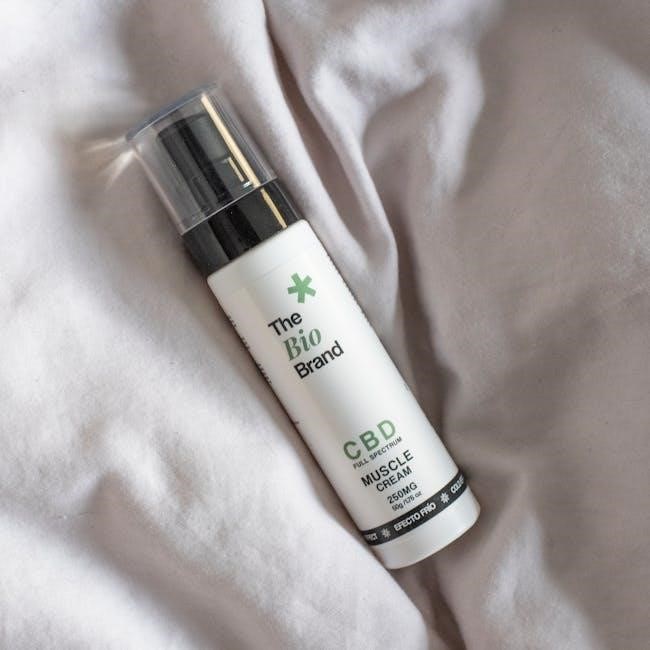
Creating Herbal Formulations
Herbal formulations combine multiple herbs to enhance therapeutic effects‚ tailored to specific health needs. This process involves synergy and customization‚ as outlined in The Modern Herbal Dispensatory.
7.1. Combining Herbs for Synergistic Effects
Combining herbs for synergistic effects enhances therapeutic outcomes‚ as different plants work together to amplify benefits. This approach‚ detailed in The Modern Herbal Dispensatory‚ allows for tailored remedies that address multiple symptoms. For example‚ blending adaptogens with nervines creates balanced formulas for stress relief. Understanding herb interactions is key to safety and efficacy‚ ensuring each combination maximizes healing potential while minimizing side effects. Proper ratios and preparation methods are essential for achieving desired effects.
7.2. Customizing Remedies for Individual Needs
Customizing herbal remedies allows individuals to address specific health needs effectively. Factors like health status‚ lifestyle‚ and personal preferences guide the creation of tailored formulations. By adjusting herb ratios and considering individual responses‚ remedies can be optimized for safety and efficacy. The Modern Herbal Dispensatory provides practical advice for adapting recipes‚ ensuring each remedy aligns with the user’s unique requirements while maintaining therapeutic integrity and promoting holistic wellness.
The Importance of Record Keeping
Accurate record keeping is vital for safety‚ consistency‚ and quality in herbal medicine making. It ensures accountability‚ tracks progress‚ and maintains the integrity of herbal formulations and processes.
8.1. Documenting Recipes and Processes
Documenting recipes and processes is crucial for consistency and reproducibility in herbal medicine making. It ensures that each preparation adheres to precise measurements and methods‚ guaranteeing safety and efficacy. Detailed records of ingredients‚ ratios‚ and techniques allow for refinement and quality control. This documentation also serves as a valuable resource for future reference‚ aiding in the identification of patterns and potential improvements. By maintaining thorough records‚ herbalists can ensure transparency and accountability in their craft‚ fostering trust and reliability.
8.2. Tracking Efficacy and Safety of Herbal Remedies
Tracking the efficacy and safety of herbal remedies involves monitoring their effects on individuals and documenting outcomes. This process ensures that remedies are both effective and safe for use. By maintaining detailed records of patient responses‚ herbalists can identify patterns and refine formulations; Regular feedback and adverse effect reporting further enhance safety protocols‚ allowing for continuous improvement in herbal medicine practices. This systematic approach supports the responsible development and use of herbal remedies.
Legal and Ethical Considerations
Herbal medicine production must adhere to regulations‚ ensuring ethical practices‚ proper labeling‚ and environmental sustainability. Legal compliance and responsible sourcing are crucial for safe and effective remedies‚ as outlined in guides like The Modern Herbal Dispensatory.
9.1. Regulations Governing Herbal Medicine
Herbal medicine production is subject to various regulations ensuring safety‚ efficacy‚ and proper labeling. These rules often require licensing‚ adherence to Good Manufacturing Practices (GMP)‚ and disclosure of ingredients. Authorities may restrict certain herbs due to potential risks‚ and ethical sourcing practices are increasingly mandated. Compliance with these regulations is essential for producers to operate legally and maintain consumer trust‚ as detailed in resources like The Modern Herbal Dispensatory. Adherence ensures high-quality‚ safe herbal remedies for public use.
9.2. Ethical Practices in Herbal Medicine Production
Ethical practices in herbal medicine production emphasize sustainability‚ fair labor‚ and environmental responsibility. Sustainable harvesting ensures that wildcrafted herbs do not deplete natural resources‚ while cultivated herbs are grown with eco-friendly methods. Fair trade practices guarantee equitable treatment and fair wages for workers involved in herb cultivation and processing. Environmental stewardship involves minimizing waste‚ using eco-friendly packaging‚ and reducing carbon emissions during transportation. Transparency in production processes and ingredient sourcing is crucial‚ ensuring consumers are well-informed. Resources like The Modern Herbal Dispensatory provide guidance on these ethical standards‚ promoting trust and integrity in the industry.
Advanced Techniques in Herbal Medicine
Advanced techniques involve innovative methods like extraction‚ bioavailability enhancement‚ and concentrated formulations. These methods optimize potency‚ ensuring effective remedies while maintaining sustainability and efficacy in herbal medicine production.
10.1. Herbal Extracts and Concentrates
Herbal extracts and concentrates are potent forms of herbal medicine‚ created through advanced techniques like solvent extraction or mechanical pressing. These methods preserve bioactive compounds‚ enhancing efficacy and shelf life. Extracts offer convenience and concentrated potency‚ making them ideal for various formulations. Modern dispensatories emphasize quality control and safety in production‚ ensuring consistent and reliable herbal concentrates for therapeutic use. These innovations bridge traditional herbalism with modern science‚ advancing the field of herbal medicine.
10.2. Specialized Formulations for Specific Ailments
Specialized herbal formulations target specific health conditions‚ combining extracts and herbs for synergistic effects. These remedies address ailments like pain‚ digestive issues‚ or cognitive support. Modern dispensatories provide detailed protocols for creating tailored blends‚ ensuring efficacy and safety. Customization allows practitioners to adapt formulations to individual needs‚ enhancing therapeutic outcomes. This approach integrates traditional wisdom with contemporary research‚ offering precise and effective solutions for modern health challenges.
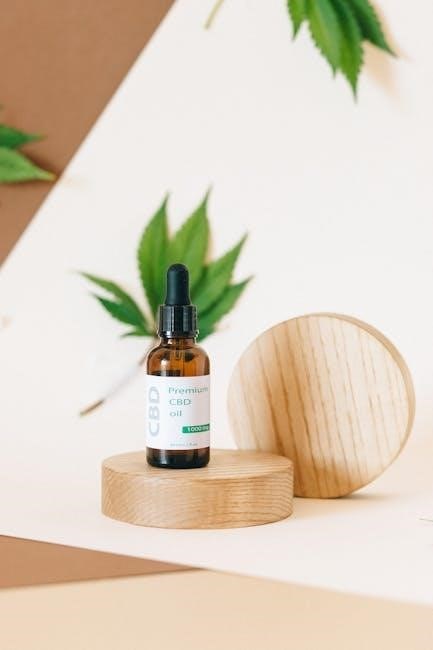
The Future of Herbal Medicine
Herbal medicine is evolving through innovative practices and integration with modern healthcare. Advances in extraction techniques and formulation development are expanding its accessibility and efficacy globally.
11.1. Innovations in Herbal Medicine Making
Innovations in herbal medicine making include advanced extraction techniques‚ nano-encapsulation‚ and bioavailability enhancement. These methods improve potency and shelf life‚ making herbal remedies more effective and accessible. Additionally‚ the integration of technology‚ such as automated dispensing systems‚ streamlines production. Researchers are also exploring sustainable practices‚ like eco-friendly solvents‚ to align with global environmental goals. These advancements ensure herbal medicine remains a viable‚ modern healthcare option‚ bridging tradition with cutting-edge science.
11;2. Integrating Herbal Medicine with Modern Healthcare
Integrating herbal medicine with modern healthcare involves collaboration between herbalists and medical professionals to create complementary treatment plans. This approach enhances patient outcomes by combining natural remedies with conventional therapies. Hospitals and clinics are increasingly incorporating herbalism into their practices‚ supported by research on safety and efficacy. Education and communication are key to this integration‚ ensuring that herbal medicine is used responsibly and effectively within the broader healthcare system to promote holistic wellness and patient empowerment.
Modern herbal medicine‚ guided by resources like The Modern Herbal Dispensatory‚ empowers individuals to harness nature for health. This comprehensive approach bridges tradition and innovation‚ fostering a brighter future for herbalism in personal and professional healthcare practices‚ ensuring safe‚ effective‚ and sustainable wellness solutions for generations to come‚ while respecting ethical standards and promoting environmental stewardship.
12.1. Recap of Key Principles
Modern herbal medicine‚ as outlined in The Modern Herbal Dispensatory‚ emphasizes the safe and effective use of herbs for health. Key principles include understanding herbal contraindications‚ adhering to ethical harvesting practices‚ and maintaining proper hygiene. Tools and techniques‚ from basic infusions to advanced extracts‚ are essential for preparing remedies. Sourcing high-quality herbs and documenting processes ensure consistency and efficacy. By integrating tradition with science‚ herbalism offers a sustainable approach to wellness‚ empowering individuals to take charge of their health responsibly and holistically.
12.2. Encouragement for Further Exploration
Herbal medicine offers a timeless path to wellness‚ blending tradition with innovation. As explored in The Modern Herbal Dispensatory‚ this practice invites deeper exploration into the world of plants. Whether through wildcrafting‚ cultivating‚ or experimenting with formulations‚ there’s always more to discover. Embrace sustainability‚ ethical practices‚ and continuous learning to enhance your herbal journey. By integrating herbalism into daily life‚ you can foster holistic health and connect with nature’s healing wisdom‚ inspiring others to do the same.